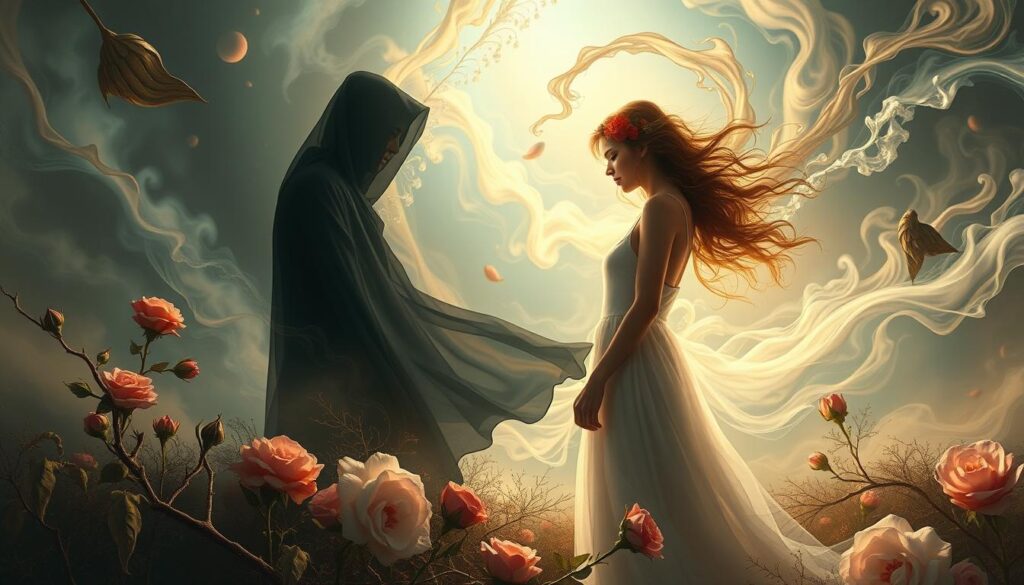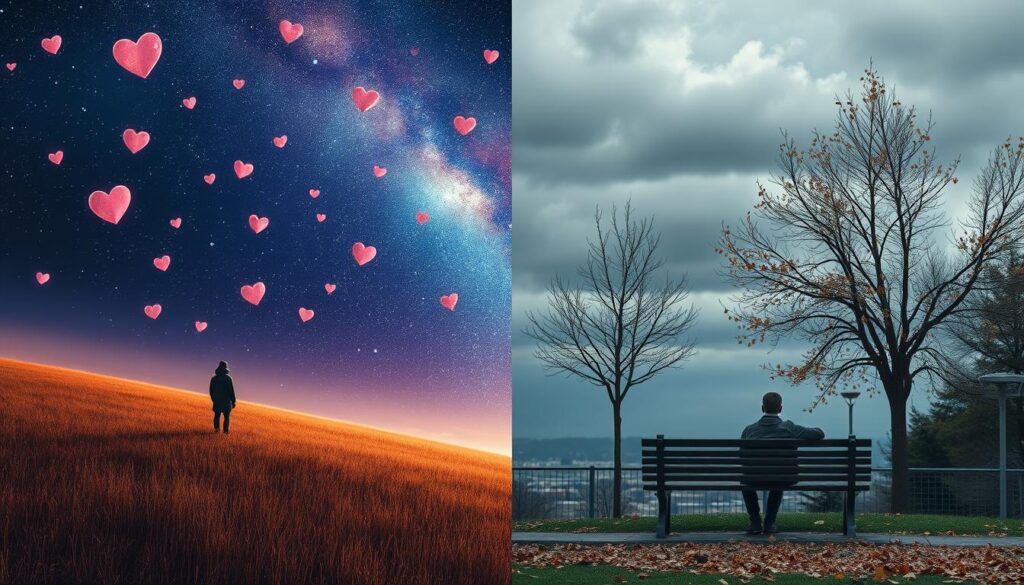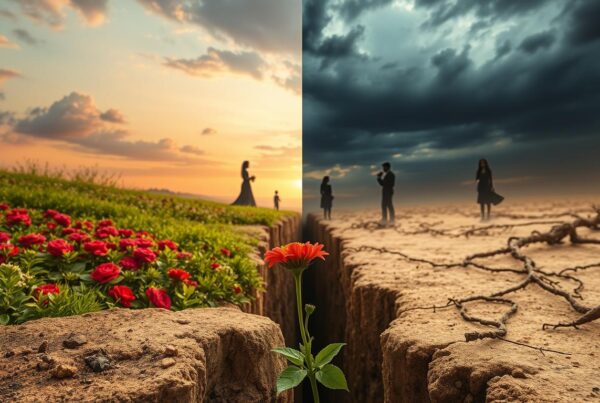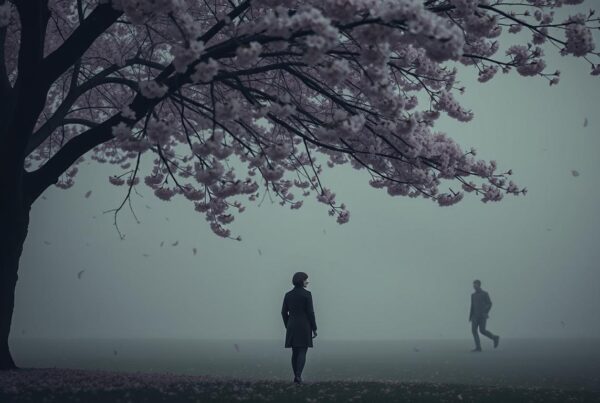Unrequited love stories touch our hearts deeply. They leave us with tales of heartache, love, and loss. These stories have a special power to connect with us, showing the deep emotions of love and longing.
We will look at different kinds of unrequited love. We’ll see why these stories stay with us. From old tales to new ones, unreturned love continues to move us, showing the pain of loving without being loved back.
The Power of Unrequited Love Stories
Unrequited love stories deeply connect with readers. They tell of longing and love that’s not returned. These stories touch our deepest feelings, exploring desire, rejection, and the search for belonging.
The sorrow and beauty of unfulfilled love make these stories last. They touch hearts across generations.
Why Unrequited Love Resonates
Unrequited love stories speak to everyone. They show the pain of loving someone who can’t love back. They also show the beauty of hope and despair.
Stories like “Romeo and Juliet” and “Cyrano de Bergerac” show why we love these tales. They reflect our deepest fears and desires.
Historical Examples of Unrequited Love
History is full of unrequited love stories. Queen Nefertiti’s love for Pharaoh Akhenaten is one. Robert Burns’ poem “A Red, Red Rose” is another.
These stories give us a peek into famous people’s lives. They also show the power of unfulfilled love in both literature and history.
Memories Etched in the Heart
Unrequited love leaves lasting memories that stay long after it’s over. These moments, whether sad or sweet, leave deep scars. They deeply affect our hearts and minds, changing how we see love in the future.
The Emotional Impact of Unforgettable Moments
When love isn’t returned, we feel deep longing and sadness. These feelings change how we see love and relationships. In love psychology, the pain and joy from these moments shape our view of love.
How Memories Shape Our Future Relationships
Memories of unrequited love don’t disappear. They shape our future in love and how we feel about it. Reflecting on these memories, we see how they influence our choices in new relationships. Past heartaches and feelings often guide us in new loves, shaping our views and actions.
The Role of Literature in Depicting Unrequited Love
For ages, literature has shown us our deepest feelings. Unrequited love is a big part of this. Authors have shown the pain and beauty of loving someone who doesn’t love back.
Classic Novels and Poems
Classic literature is full of deep stories about unrequited love. Romantic poetry, like John Keats’s “La Belle Dame Sans Merci,” shows a knight’s love that isn’t returned. Emily Brontë’s “Wuthering Heights” tells of Heathcliff’s all-consuming love for Catherine Earnshaw.
Modern Literature and Unrequited Love
In today’s stories, unrequited love looks different but still touches our hearts. Authors like Haruki Murakami explore the quiet sadness of loving in vain. His book “Norwegian Wood” shows how deep and lasting unreciprocated love can be.
Real-Life Tales of Unreturned Affection
Unreturned love has touched many lives throughout history. It shows the deep emotions and secrets behind famous faces. From famous people to regular folks, the pain of unrequited love is something we all feel.
Famous Historical Figures
History is full of famous love stories. Queen Elizabeth I’s love for Robert Dudley is a big mystery. Vincent Van Gogh’s love for Kee Vos-Stricker also adds to his tragic story.
Personal Accounts from Everyday People
Stories of famous people are interesting, but personal tales hit closer to home. These stories show how unreturned love affects people’s lives. They come from diaries and talks with friends, giving us a fresh look at this old emotion.
Psychological Effects of Unrequited Love
Unrequited love is often seen as romantic in stories and movies. But it can really hurt a person’s mind. It can cause deep sadness and worry. This kind of love can make it hard to live day-to-day.
One big problem is becoming too obsessed with the person you love. This obsession can make you think about them all the time. It can also make you act in ways that aren’t good for you. Even when it’s clear they don’t feel the same, you keep hoping they will.
Not getting the love you want can also make you feel bad about yourself. You might start to doubt your worth. This can make you feel sad and not good enough. It’s important to talk about these feelings to get better.
It’s key to understand how unrequited love affects the mind. Experts say we need kindness and therapy to deal with these feelings. With the right help, we can lessen the harm and improve our mental health.
Transforming Pain into Art
Unrequited love has long been a spark for deep art. It has driven many artists to turn their pain into art. This art moves many, whether through music, paintings, or films.
Music and Songs Inspired by Unrequited Love
Music is full of songs about unfulfilled love. Artists like Adele and Eric Clapton have made music from their heartache. Their songs help both the creator and listeners who see their feelings in the music.
Art and Paintings
Visual arts have also been shaped by unrequited love. Paintings like Gustav Klimt’s “The Kiss” and Edvard Munch’s “The Scream” show deep longing. They let viewers see the artist’s pain and the common feelings we all share.
Theatre and Films
Unrequited love is also seen in movies and plays. Films like “La La Land” and “Her” explore this theme deeply. They show how love, even when not returned, can be a powerful story of hope and human connection.
Coping with Unreturned Love
Unreturned love can be very hard and sad. But, by using good coping strategies and getting the right help, you can get through it.
Therapeutic Approaches
Talking to a therapist for love issues can really help. They give a safe place to talk about feelings and learn to feel better. Cognitive-behavioral therapy (CBT) is great for changing negative thoughts and building emotional strength.
Support Systems
Having a strong support system is key. Friends, family, and support groups help a lot. They make you feel less alone and understood. Support groups let you share your story and get support from others who know what you’re going through.
Personal Growth and Acceptance
Unrequited love can also help you grow. By working on self-improvement and accepting yourself, you can become stronger and wiser. Doing things like journaling, meditation, and trying new hobbies can help you feel better. Growing personally helps you move forward with more self-worth and hope for the future.
The Dynamics Between the Lover and the Beloved
Unrequited love is often seen as just one side of the story. But it’s important to see the feelings on both sides. We explore the emotions of both the lover and the beloved, each with their own struggles.

The Perspective of the Unrequited Lover
The unrequited lover feels many strong emotions. They might feel hope, admiration, despair, and longing. This deep feeling can change how they act and think.
In the world of unrequited love, the lover might feel stuck. They keep hoping and doubting themselves. They look for love from the one they care about, even when it’s not returned.
The Perspective of the Beloved
The beloved’s feelings are also complex and not often talked about. They might feel guilty, confused, or resentful. This is because they’re dealing with someone’s strong feelings for them.
Seeing things from the beloved’s point of view helps us understand unrequited love better. It shows how both people are deeply affected, in ways we might not expect.
Comparative Analysis: Unrequited Love Across Cultures
Unrequited love is a theme that crosses all boundaries. It shows up in different ways in various cultures. Looking at love in different societies, we find many expressions and reactions to this strong emotion.
In Eastern cultures, like Japan, unrequited love is seen as noble and silent. Classic literature shows heroes who suffer in silence, showing loyalty and honor. In Western stories, like European novels, unrequited love is shown as dramatic. It focuses on personal pain and the search for answers.
In Latin American literature, love stories often have passion and tragedy. The idea of “amor imposible” or impossible love shows the deep feelings and social barriers. African stories might talk about unrequited love in family and community. They highlight the importance of community and tradition.
Even though cultures see unrequited love differently, it’s a universal human experience. This study shows that, despite different views, unrequited love is a powerful and shared theme around the world.
The Influence of Media on Unrequited Love
The media shows us what love is, especially unrequited love. Movies and social media shape how we feel and act. They help us understand and share one-sided love.
Movies and TV Shows
Movies and TV shows show the sad side of unrequited love. Films like “The Great Gatsby” and “La La Land” show how it affects characters. TV shows like “Friends” and “The Office” also dive into this topic.
These stories make us feel seen and understood. They show that unrequited love is real and okay.
Social Media and Unrequited Love
Social media changes how we see and deal with unrequited love. Sites like Instagram and Facebook let us share our stories. This creates a community that supports each other.
Hashtags and viral posts make these stories more relatable. Social media lets us share and connect over our feelings.
The Evolution of Unrequited Love in Pop Culture
Looking at how unrequited love has changed in pop culture is really interesting. It shows how our views on love have grown. This change is clear in how stories and movies show us love that isn’t returned.
From Classics to Modern Day
Old stories and movies often showed unrequited love as a noble thing. Think of “Romeo and Juliet” or “The Sorrows of Young Werther”. These stories made love that wasn’t returned seem very special.
Now, we see more real and detailed stories about unrequited love. Movies like “La La Land” and “500 Days of Summer” show the true feelings behind it. They make us see love in a new way.
Shifts in Understanding and Representation
How we see unrequited love in pop culture has changed a lot. This change shows how our views on love have grown. Modern stories let us see deeper into the feelings of those who love but are not loved back.
This change also shows how we understand emotions better now. It makes stories about unrequited love more touching and real for us today.
Fictional vs. Real-Life Unrequited Love
Fiction and reality often mix, especially in unrequited love. Stories in books and movies have long shown us love in many ways. They create stories that touch our hearts for a long time.

But how do these stories compare to real life? Looking at both sides can show us how art affects our views.
Similarities and Differences
In stories and real life, unrequited love is very emotional. Books and movies might make these feelings bigger, but the core is the same. Seeing where they match and don’t match shows us the common human feelings.
The Impact of Fiction on Real Life Perceptions
Fiction shapes how we see love, sometimes unrealistically. It can also give us comfort by showing us relatable stories. Knowing this helps us understand love better in our own lives.
Exploring the Concept of Soulmates and Unrequited Love
The idea of soulmates has fascinated people for a long time. It’s tied to romantic dreams and the search for the perfect partner. These beliefs say there’s a deep connection that goes beyond time and space, promising love and understanding.
But, the reality of unreciprocated love can break these dreams. It leads to emotional pain and sadness.
Soulmate Theory
Soulmate theory says each person has a special partner chosen by fate. This idea is found in many cultures and stories. It makes people believe in a magical love, but it’s not always true.
When Soulmates Do Not Reciprocate
When the believed soulmate doesn’t feel the same, it’s very disappointing. It makes people question their beliefs about love. They have to deal with the gap between what they thought and what really happened.
Understanding that soulmate beliefs are not set in stone can help. It teaches us to be strong and open. This way, we can find happiness in our love lives, even when love isn’t returned.



